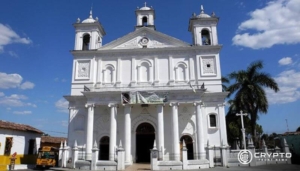- Russia has legalized Bitcoin mining, allowing registered entities and low-energy users to mine without heavy regulation.
- The Bank of Russia can ban certain crypto assets if they threaten financial stability under new laws signed by Putin.
- The legislation includes provisions for crypto trading and infrastructure, reflecting Russia’s strategic shift toward digital assets.
New Crypto Regulations Take Effect
On August 8, Russian President Vladimir Putin signed new legislation officially legalizing Bitcoin mining in Russia.
The laws establish a national registry to determine which entities have the right to mine Bitcoin in the country. This marks a significant shift in Russia’s approach to digital assets, as it embraces the potential of cryptocurrencies amid increasing global interest.
Under the new regulations, individuals with low-energy consumption mining rigs are exempt from the national registry requirements. Legal residents who operate below the government’s electricity cap can mine Bitcoin without registering. This move is expected to encourage small-scale miners while ensuring that larger operations are regulated.
Crypto Infrastructure and Trading
The legislation also recognizes network infrastructure components like mining pools and address identifiers.Russian blockchains will now be allowed to facilitate the trading of foreign virtual currencies, effectively expanding cryptocurrency into the country’s financial structure.
Nevertheless, the Bank of Russia keeps excessive rights to prohibit certain kinds of assets if it considers that they pose potential risks to the country’s financial stability.
Putin’s approval of these crypto laws follows frameworks passed by the State Duma in July, which laid the groundwork for the legalization of crypto mining. The new law is set to take effect on November 1. Also, the legislation grants the Russian central bank the power to explore cross-border payment terms in cryptocurrencies.
Broader Global Crypto Adoption
The change of gears to regulation in this country can be traced to increasing Bitcoin adoption around the world. Companies and countries such as El Salvador and parts of the United States have also sought to incorporate cryptocurrencies. This is another example of the increasing recognition of Bitcoin and blockchain technology all across the globe.
The new laws specify that only Russian legal entities and registered individual entrepreneurs can participate in crypto mining. Those not registered but operating within the government’s electricity cap are also allowed to mine.
This approach aims to balance innovation with regulatory oversight, positioning Russia as a significant player in the global crypto landscape.





